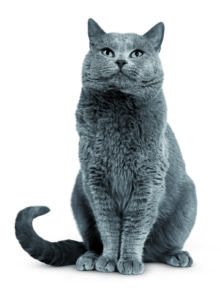Caring For An Older Cat
Cats are such dynamic creatures – sleek and great at hiding the many signs and little niggles that they may develop as they start to hit their middle and older years. It may come as a surprise to you that in cats, the many changes linked to ageing can start from as young as 7 years of age! It’s never too soon to prepare for supporting your cat when it starts to show the first signs of ageing, so why not read on to find out more? Even if your cat is younger at the moment, all cats age at different rates and it always pays to be well-informed!

As our cats get older, in simplistic terms, what we really see is the accumulation of wear and tear on their bodies that occurs progressively with the passage of time. Of course, these changes should be seen as a natural evolution – however, it is important to consider how you can help to keep your cat in the best possible health and condition as they age. Providing the appropriate nutrition (as offered by the ROYAL CANIN® diets for cats 7 years of age and over) is a vital consideration when it comes to supporting your older cat but there are many other things you can do to support them further.
Please do follow our top tips below on how to support your feline companion as they grow old gracefully:
ROUTINE
As cats age, they may find things more confusing, so it is important for them to find a regular routine. Help them to settle into a comfortable daily programme by ensuring you offer food, play and outside access (where appropriate) at the same times each day.
BEHAVIOUR
Some cats will want to sleep much more as they get older and play less, whereas others will become friendlier towards their owners, particularly if they are now choosing to stay inside more. Make sure you follow your cat’s cues and don’t force them to do anything they are no longer comfortable with, even if it was a normal behaviour for them before. If your cat’s behaviour changes markedly, always discuss your concerns with a vet.
GROOMING
If your cat’s coat becomes more unkempt as they age you may need to increase the frequency with which you groom them. It is also worth getting them checked by a vet, as an unkempt coat can sometimes be a sign of other conditions, such as joint or dental sensitivities, or even a thyroid concern, which is very common in older cats. Also, if your cat is less active, you may find its nails become overgrown and you will need to start trimming them – something you probably have never needed to address before. Your vet nurse will be able to guide you on how to do this.
DRINKING
Keep a close eye on your cat’s drinking as it gets older. Increases in water intake can be the first signs of more serious concerns, including kidney problems and diabetes and should prompt you to book a veterinary consultation.
REGULAR CARE
Don’t forget, your cat still needs all of its regular care, such as vaccinations, worming and flea treatment. It is really important that you don’t stop these now, unless your vet has advised otherwise.
WEIGHT
Many older cats are prone to putting on weight up to the age of about 12 years and then losing weight after this period. Obviously all cats age slightly differently, so make sure you select the appropriate diet for your cat’s age, or as recommended by your retailer or vet for their stage in the ageing process, to help manage your cat’s weight as your pet matures. Any major changes in your cat’s weight should be discussed immediately with a vet – in some instances, weight loss or gain may indicate other underlying concerns.
HOUSEHOLD ADAPTATIONS
Offer your cat a litter tray to use inside, even if they have always only toileted outside in the past. A litter tray may be a welcome addition if they are less active and do not want to go outside as much now. If your cat has mobility issues or joint sensitivities, consider using a tray with one or more lowered sides so it is easier for your cat to climb into and out of. Continue to assess your cat’s vision and hearing and make any appropriate adaptions around the house as recommended by your vet if you notice any deterioration in these senses.
VETERINARY SUPPORT
Whilst we can put many changes in our older cats’ behaviours down to age-related changes, it is important that our pets receive regular veterinary checks as they start to age. Most vets offer regular “senior pet health checks” at very reasonable rates, so your cat can receive a preventative health care package, just as humans do as they hit middle-age and older. Routine checks usually pick up on most of the common age-related issues before they have a major impact on your pet’s lifestyle, meaning you can manage them as effectively as possible.
QUALITY OF LIFE
Your veterinary practice will also be well-placed to help you assess your cat’s quality of life as your companion continues to get older. It is important to continue to assess this quality – as long as your veterinary practice is happy that your cat is comfortable and enjoying great life-quality, you can rest assured that you are doing your best as an owner!
PLAY AND EXERCISE
Adapt any play and exercise routines to your older cat’s slower movements and reduced energy levels, as recommended by their veterinary practice. It is important to keep play times shorter and more regular now your cat is older, so as not to overtire them but to continue to keep them mentally and physically engaged.
© ROYAL CANIN® SAS 2017. All rights reserved.